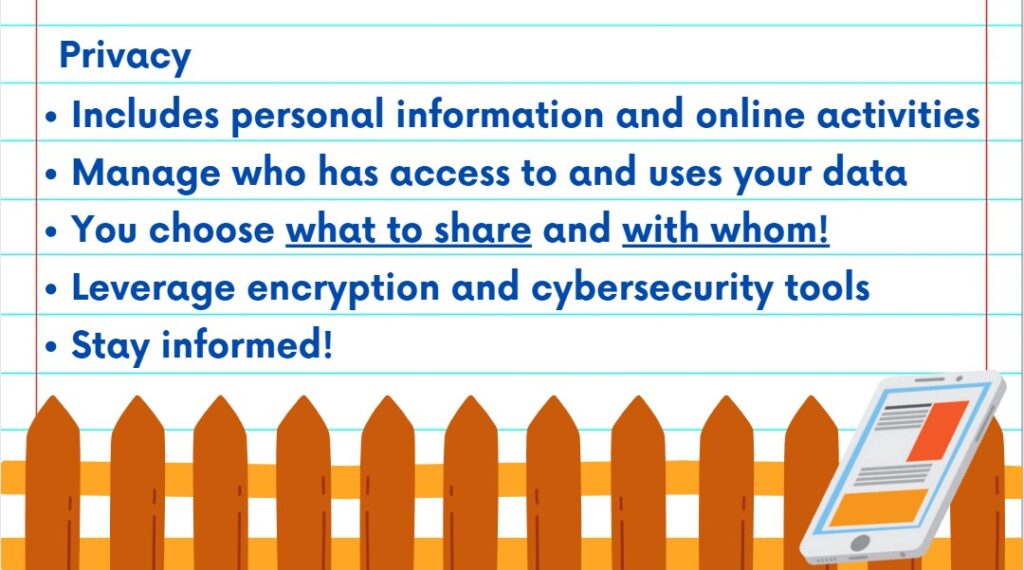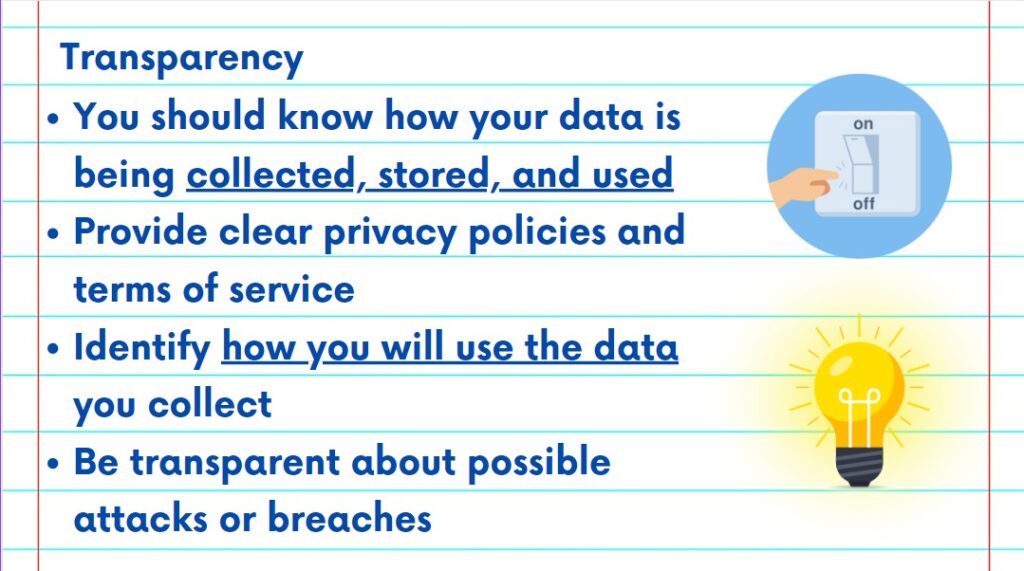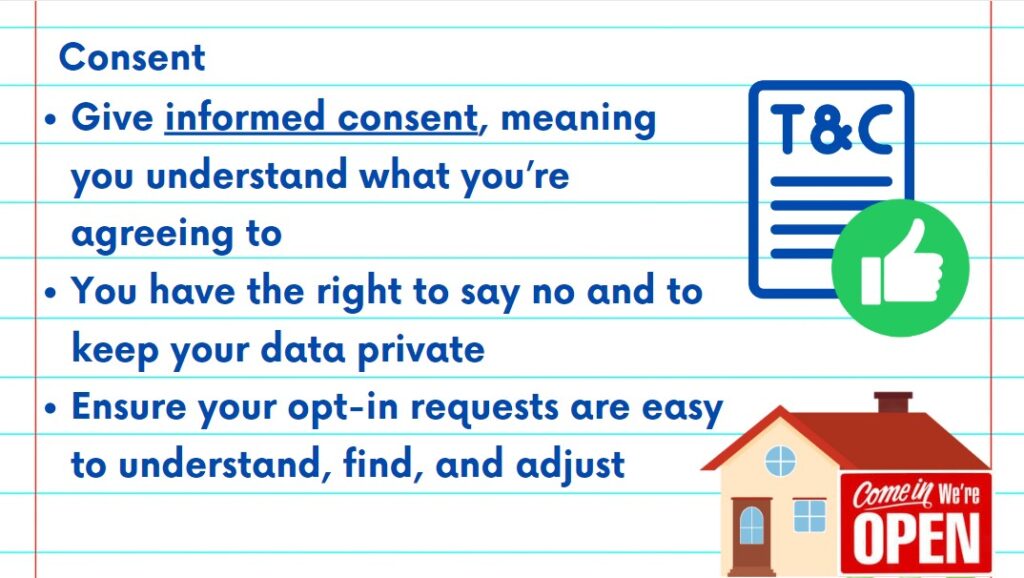This NSDC Data Science Flashcards series will teach you about the importance of data ethics. This installment of the NSDC Data Science Flashcards series was created by Florence Hudson and Varalika Mahajan. Recordings were done by Lauren Close, Florence Hudson, and Emily Rothenberg. You can find these videos on the NEBDHub Youtube channel.
The core data science ethics concepts of privacy, transparency, and consent allow scientists and consumers alike to navigate the data collection landscape with confidence and control. Safeguarding personal data is a right and a responsibility. We must take control of our online presence and respect others’ data privacy choices while keeping these guidelines in mind.

Privacy is like a digital fence that protects your personal space. Your smartphone is kind of like a virtual residence. Your possessions within the home are your data, including personal information and online activity. Maintaining your privacy allows you to manage who has access to or uses your data. Websites, apps, and social media platforms may want to access your data, but the choice of what to share and with whom is up to you.
Data scientists can help customers maintain privacy by using cybersecurity and encryption tools. Stay informed about local laws and regulations that apply to your data protection and collection processes.

Transparency is like turning on the lights to see what is happening inside your digital house. When you visit a website or use an app, you should know how your data is being collected, stored, and used.
Transparent companies provide clear, easy to understand privacy policies and terms of service. Data scientists should clearly identify how they will use the data they collect. Be transparent with your customers if your systems are subject to a cybersecurity attack.

Finally, we come to consent. This is like giving someone permission to enter your digital house. When you agree to a company’s terms and conditions, you’re allowing them to access and use your data. It’s essential to give informed consent, meaning you understand what you’re agreeing to. If you’re uncomfortable with the terms and conditions, you have the right to decline.
Data scientists must be thoughtful about how we request consent from audiences. Make your opt-in requests easy to understand, find, and adjust.
Please follow along with the rest of the NSDC Data Science Flashcard series to learn more about data science ethics.
